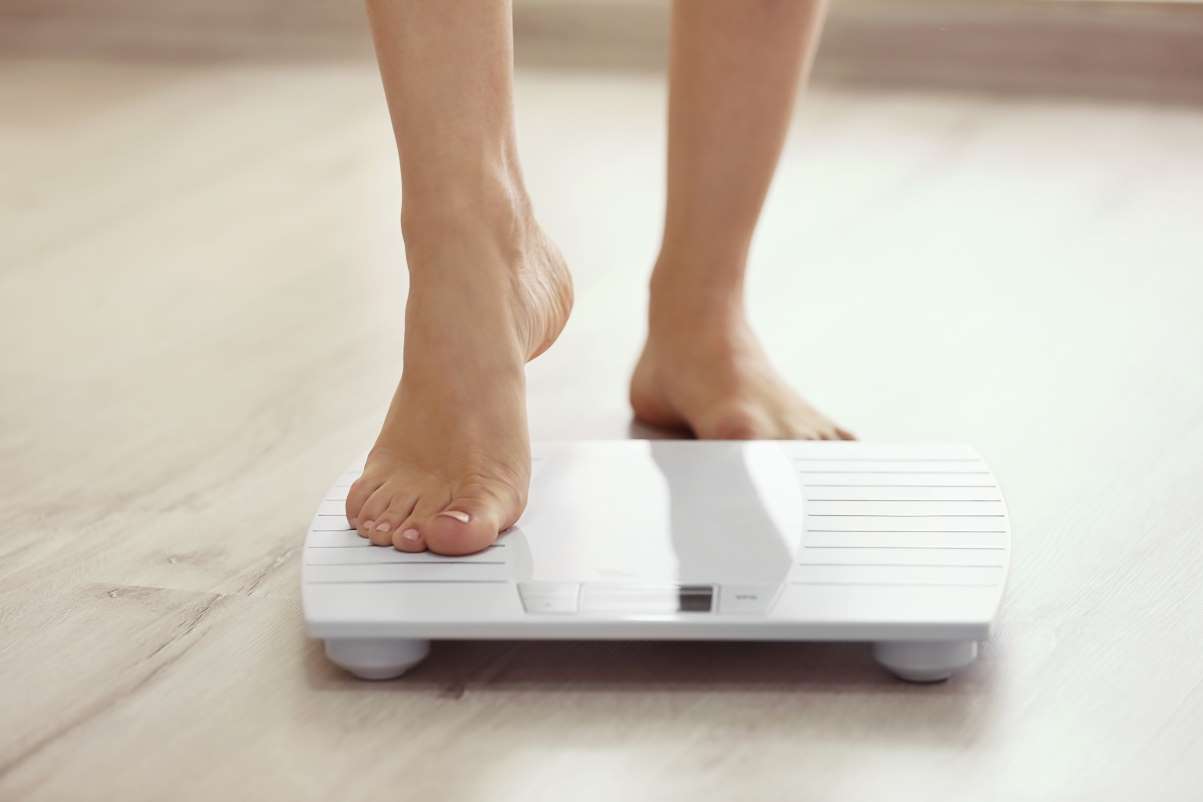While the scales don’t tell the whole story when it comes to body composition, they are one of the most important tools at our disposal when it comes to measuring progress.
However, the inherent flaws with any progress measurement tool mean that how you approach and interpret bodyweight readings is key. Here’s everything you need to know about measuring body weight measurements.
Key takeaways
- Make sure to position your bathroom scales on a flat, hard surface.
- Weigh yourself every morning, first thing on waking, after going to the bathroom and before drinking any water.
- If you can’t weigh yourself when you wake up, always remember to weigh yourself at the same time and under the same conditions.
- Where possible weigh yourself every day or a minimum of three times a week.
- Head to the “progress” tab in the U.P. app to see a summary of your weekly progress.
- For weight loss, aim for a drop of between 0.5 and 1% body weight drop per week.

What you need
- Digital body weight scales
- Position the scales on a flat, hard surface, e.g., bathroom tiles rather than an uneven, soft surface, e.g., carpet.
Frequency and timing
You need a single morning body weight reading to create your starting meal plan.
During your transformation, aim for seven readings per week and a minimum of three.
Weigh yourself first thing in the morning. Make a note of the time and aim to keep this consistent (where possible).

How to measure
- Weigh yourself wearing minimal or no clothing, after using the bathroom and before eating or drinking anything.
- At the end of each week, head to the “progress tab” to see your weekly average body weight.
The “progress tab” will also show you the percentage change between your latest weekly average body weight and the previous week’s average. You will be able to do this from the end of week 2, e.g., week 1 vs week 2, week 2 vs week 3, and so on.

Trainer tips:
If you do not have access to your regular scales, e.g., when travelling, and it is only for a few days, you can either use a different set of scales, e.g., a hotel room or wait until you return home to start weighing yourself again.
You will almost always weigh more in the evening than you do in the morning, due to added weight from food and drink. This is why we recommend weighing yourself upon waking for the most consistent readings.
Recording the time of measurement can help explain daily fluctuations in your body weight. For example, you would most likely be heavier if you weighed yourself at 5 am versus 10 am due to having more undigested food in your stomach (the timing of your last meal can also cause bodyweight fluctuations).



